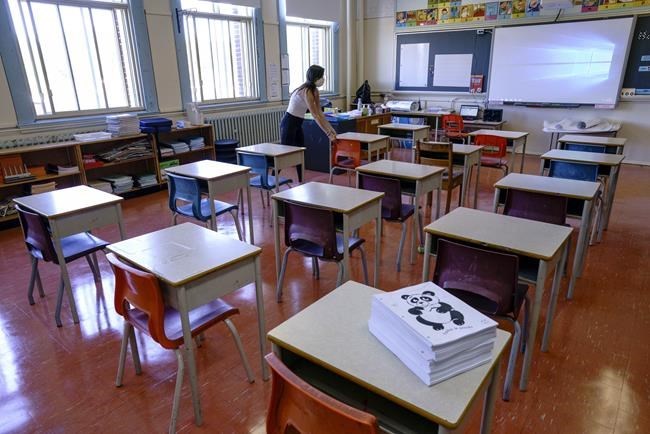MONTREAL — About 65,000 Quebec teachers say they will launch an unlimited general strike on Nov. 23, as hundreds of thousands of other public sector workers are set to walk off the job on Monday in the first of a series of one-day strikes.
The province's latest contract offer has been soundly rejected by unions, which are promising a historic fight to preserve their purchasing power during a time of high inflation.
On Thursday, 60 delegates with the Fédération autonome de l’enseignement — known as the FAE — rejected the government's new offer and set a date to launch an unlimited general strike: Nov. 23. Union leadership said the government has about three weeks to settle with them and avoid paralyzing part of the school system.
"The choice of this date still leaves 20 days for negotiations to reach an agreement," the FAE said. "If the Legault government is faithful to its public declarations that it wishes to settle the negotiations before the holiday season, now is the time to prove it."
The FAE includes nine unions representing teachers working in several francophone Quebec school boards, including in Montreal, Laval and Quebec City. They called the offer tabled Sunday by Treasury Board president Sonia LeBel “clearly insufficient."
Quebec's latest offer includes a 10.3-per-cent salary increase over five years and a one-time payment of $1,000 to each worker. The offer also includes more money for workers and shifts the government says are priorities, such as nurses working nights and weekends and teachers' aides in primary schools. Workers who earn less than $52,000 a year would also receive an additional one per cent increase.
LeBel said that when all those elements are factored in — along with the non-recurring $1,000 payment — the government's offer comes closer to 14.8 per cent over five years.
The offer applies to the FAE and to hundreds of thousands of other public sector workers, whose unions are negotiating at the same time with the province.
But the unions say the government's proposal doesn't cover inflation. They have countered with a demand for a three-year contract with annual increases tied to the inflation rate: two percentage points above inflation in the first year or $100 per week, whichever is more beneficial, followed by three points higher in the second and four points higher in the third year.
Meanwhile, a group of unions calling itself the "common front" has opted for a series of single-day strikes, the first of which will start Nov. 6 and involve workers in the education, health and social service sectors.
The four common front unions account for 420,000 public sector employees, including some teachers and school support staff, junior college staff and health and social services workers, although the latter are subject to essential services rules.
As well, the Fédération interprofessionnelle de la santé (FIQ), which represents 80,000 nurses, auxiliary nurses, respiratory therapists and clinical perfusionists, will be holding a two-day strike on Nov. 8 and 9.
This report by The Canadian Press was first published Nov. 3, 2023.
The Canadian Press



